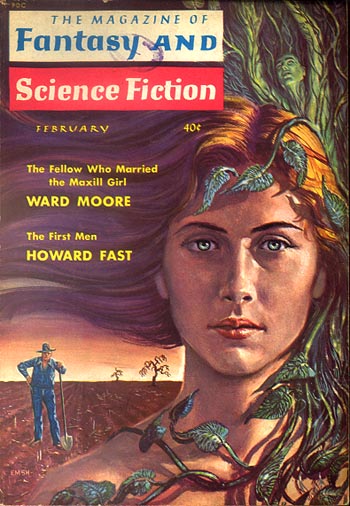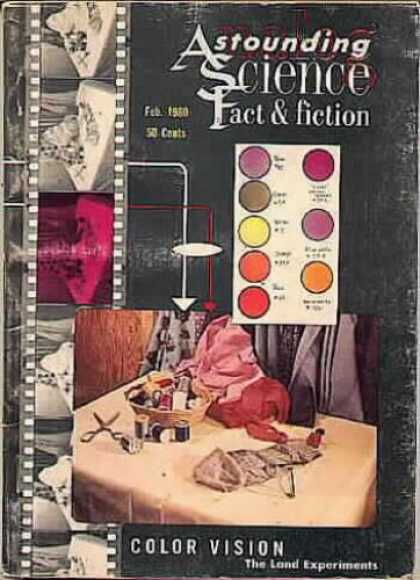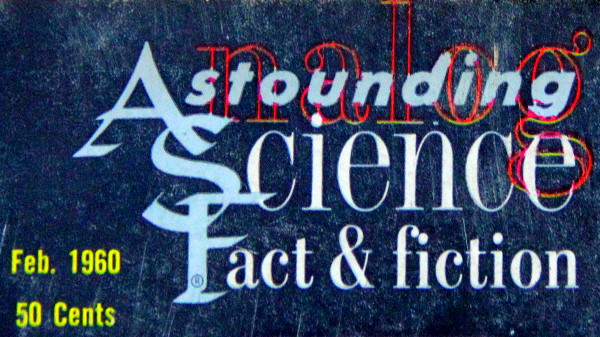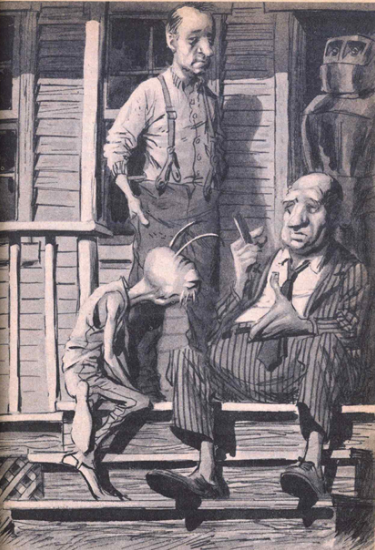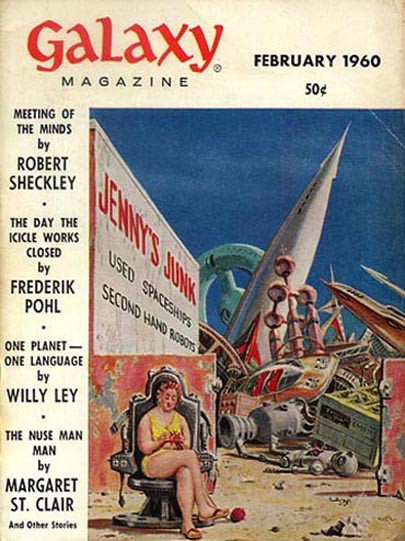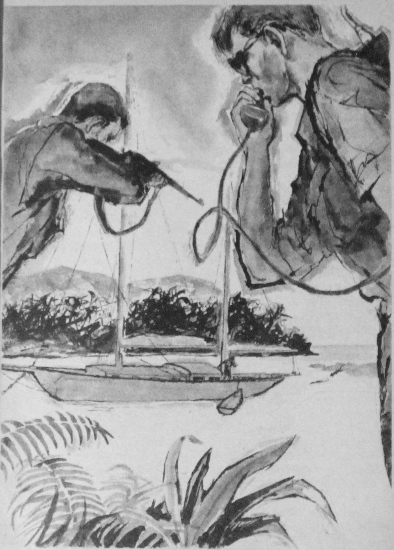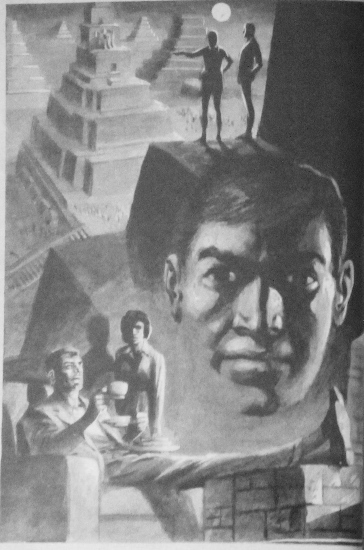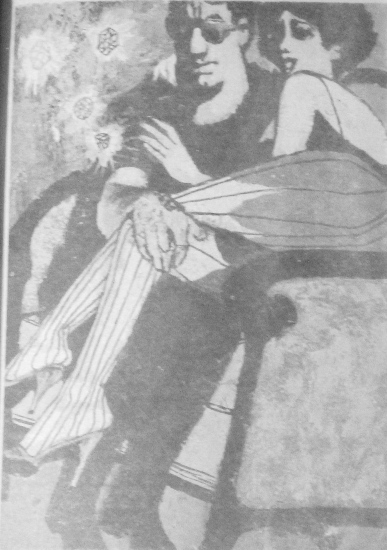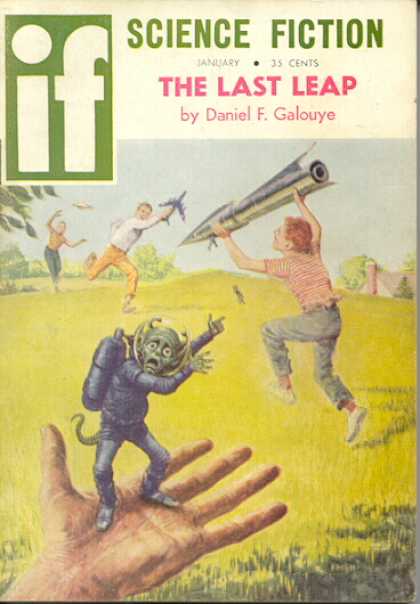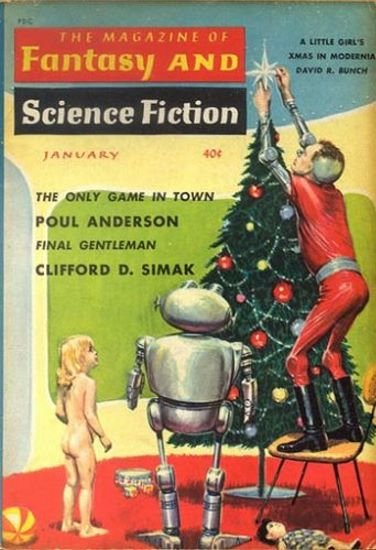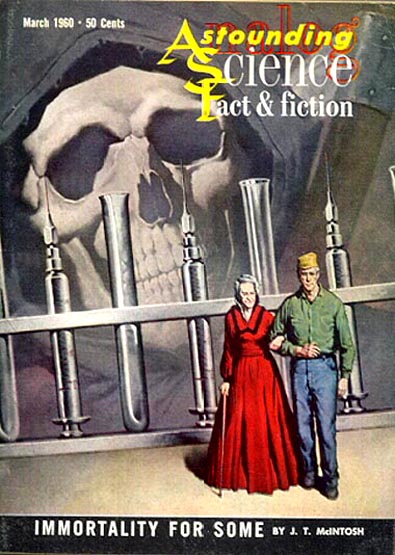
It had to happen some day–Astounding has pulled itself out of a nose dive, for now.
Last time, I discussed the most excellent serial, Deathworld. Still, a single good serial does not a good issue make. Thankfully, Campbell has at long last, and after a merciless rough patch, delivered a quite readable book.
J.T. McIntosh can always be relied upon to provide entertainment; his lead novella, Immortality for Some is no exception. In the future, society's most worthy, the 10% with sufficient talents and/or accomplishments to make the cut, are allowed to undergo "Rebirth." This process erases all memories and restores the body to an adolescent stage of physical development. The special person gets to live again in a sort of reconstituted reincarnation.
But what happens when one of the world's intellectual elite doesn't want to cheat death? This is a world that doesn't want to lose a cultural treasure, and it takes an exceptional person, indeed, to evade Rebirth.
Strongly written, with the first half written from the point of view of an aged woman pianist of superlative talent giving her last concert before Rebirth; the second stars the aforementioned fellow—a seemingly unremarkable caretaker whom the musician befriends. It's worth your time.
And now, I shall surprise my audience by saying with a straight face that I actually enjoyed Randall Garrett's contribution to this issue: In Case of Fire…. In this far future, the sprawling Terran Empire cannot afford to send its best and brightest as ambassadors to less-esteemed stations. The story opens on a remote, unimportant world whose embassy is staffed with barely functional neurotics. Yet in that insanity lies the key to ending an interstellar war. Garrett manages to be somewhat clever and to not offend. Quite an accomplishment for him.
Chris Anvil's Shotgun Wedding is another of his unremarkable space-fillers about an alien race whose plan to disrupt humanity by flooding the market with clairvoyant television backfires. One bit I liked, however, was the depiction of pen pals from different countries using their television screens to correspond across thousands of miles. When the world is finally wired into OMNIVAC, decades from now, I imagine we'll see such a phenomenon.
Editor Campbell has been trying to make a go of the slick non-fiction section of his magazine for several months. This issue is the first with readable articles, the first of which is Mars: A Summing Up by R.S. Richardson (perhaps better known by his nom d'plume, Philip Latham). Mr. Richardson does an admirable, if slightly dry, job of comprehensively summarizing the current state of knowledge regarding the mysterious Red Planet.

We've enjoyed three relatively close approaches to Mars over the past six years, the likes of which will not recur until 1971, by which time we will probably have sent at least one probe to investigate close-up. As a result, scientists have amassed a bonanza of information. Yet it is still unknown whether or not Mars has life, though if it does, it must be of a very low order. The most exciting work has been done by the astronomer A. Dolfuss, who has determined the nature of Martian soil to examination of its polarization (the non-randomness of the angle of vibration of light that reflects from it). That we've learned so much about Mars is, of course, a marvel in and of itself. To quote the author, "To tell anything about a body that never comes closer than thirty-five million miles taxes your ingenuity to the utmost."
Dr. Asimov was also tapped to provide an article after a long hiatus from Astounding's pages. Microdesign for Living, about the biochemical synthesis of proteins, is not one of his better pieces, which is to say that is readable but not memorable.
Poul Anderson (as his Astounding alter-ego Winston P. Sanders) wraps things up with a short piece called The Barrier Moment. Scientists may not know why one can't go back in time more than three years, but a philospher believes he has the horrifying answer. Perhaps there isn't any time to go back to…
All told, the March 1960 Astounding clocks in at a respectable three-and-a-half stars. That is the best this magazine has been since I started rating the issues in January 1959. I sincerely hope Campbell can keep this up!
—
Galactic Journey is now a proud member of a constellation of interesting columns. While you're waiting for me to publish my next article, why not give one of them a read!
(Confused? Click here for an explanation as to what's really going on)
This entry was originally posted at Dreamwidth, where it has comments. Please comment here or there.


